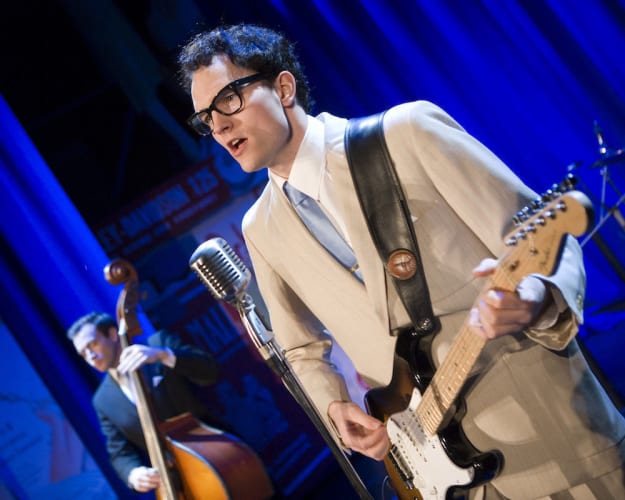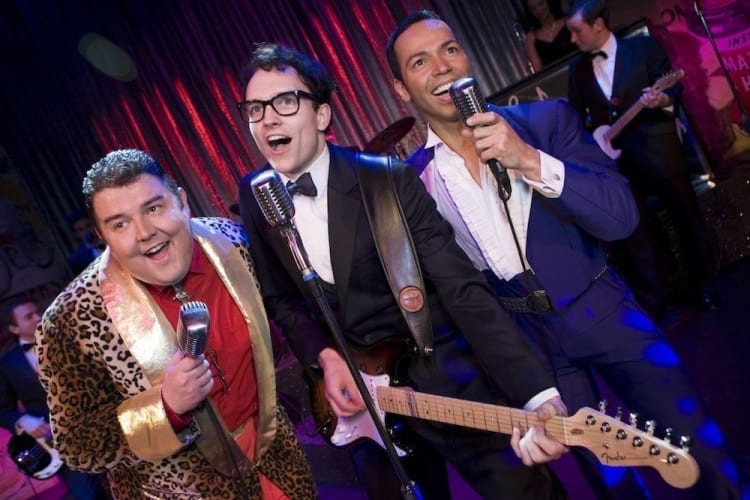Despite having a recording career that lasted barely three years, Buddy Holly created a sound and a body of music which, as they themselves acknowledge, influenced the Beatles and the Rolling Stones; which probably means he influenced the whole of subsequent popular music (by white artists, anyway).
Unlike many other so-called ‘jukebox musicals’, Buddy makes an effort to dramatise some of the key moments in the musician’s career. No matter that many of the scenes are functional and unimaginatively staged, or that much of the dialogue is clunky and expositional, it’s the thought that counts. Well, no it isn’t, of course. It’s the music that counts.
One would imagine that casting the lead part is quite a tough job: the role calls for someone who can look like Buddy Holly, talk like Buddy Holly, sing (more or less) like Buddy and play guitar like him, too... not to mention being able to act a bit. Roger Rowley carries off all of these tasks; with distinction in the movement and guitar categories. It’s not his fault if sloppy direction means he more or less has to wrestle himself to the ground, when the Crickets are supposed to be restraining his fiery temper.
If Adrian Rees’s design still does a good job of recreating a sense of period, other aspects of this 25th anniversary production need a rethink. Much of the direction is flat, and the actors often ‘kick’ the few good lines the script offers them. An exception here is the staging of the key performance (in reality performances) at Harlem’s Apollo Theater in 1957, where Holly and the Crickets win over a partisan African American crowd. This landmark, crossover moment opens with a very fine rendition of “Shout” (later a hit for Lulu) by Miguel Angel and (especially) Lydia Fraser.
Another plus in the production is the handling of Holly’s death—not an easy thing to present in a 'feelgood' show. Spotlighting a lone microphone stand and acoustic guitar, whilst, unseen, a late night mid-West radio host, (Hipockets Duncan) quietly announces the death of his friend, deals with this problem quite neatly. Shaun Hennessy, as Duncan, carries off the laid-back radio host convincingly, but needs reining in during his top note exchanges with Buddy.
The rest of the cast make decent jobs of thinly-written roles. Musically, there are solid performances all round, though special mention has to go to Jason Blackwater as J P Richardson. Blackwater has the presence and charisma to bring the artist better known as the Big Bopper back to life.
Holly, Richardson and rising hispanic star Ritchie Valens (played here by Will Pearce) all died when the light aircraft they were traveling in came down in a snow storm on 3 February, 1959.
Tonight is the 55th anniversary of that crash. In tribute, the entire cast, led by Rowley, deliver a moving and rather beautiful version of Don McLean’s “American Pie”. The audience sing along, quite touchingly commemorating ‘the day that music died’.
Respects duly paid, it is time for more encores; more singing, dancing and clapping along. The music, you see, it’s all about the music.

